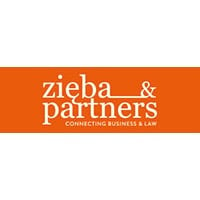

Regional legal counsel | Ferrero




Marta Ziółkowska-Nasińska
Regional legal counsel | Ferrero
I have assisted in introduction of several new Ferrero products on the Polish market, including a successful Nutella B-Ready launch in 2017.
Over the last year, I was responsible for negotiating, concluding and executing an agreement regarding a complex and complicated infrastructural and real estate project. This transaction was not only important due to its geographical impact, but it has also gained her team an international recognition and proved that the team can manage complex transactions that go much further than its regular point of attention. Another notable achievement is that a total number of litigations was reduced by 50% during the last year.
There is a difference between a lawyer and a legal manager. One can have an in-depth understanding of law, but be unable to navigate in business environments. To become the legal manager “soft skills” are essential. You must be a trusted and reliable advisor, enabler, leader and guardian of law, but also act with integrity, and within the company’s values and heritage. Be flexible and accessible to others. Empathy; listen and show a true interest and care about people and their matters.
The team makes a regular legal check in an automated online system that manages the production process and includes the company’s products and associated marketing materials. In addition, online webinars and e-learnings were introduced to conduct legal trainings and ensure the broadest participation, including field sales force.
The Polish market is growing and changing rapidly, thus it may be challenging, but equally rewarding if you are open and ready to utilise the new opportunities. “Luck is what happens when preparation meets opportunity” (Seneca). When people are moved out of their comfort zone, it can turn up great for them. You never know what will prove useful and when the opportunity comes knocking on the door you will be ready. Remember to keep your head and always try to see a bigger picture.
As a law firm lawyer, in addition to being a trusted legal advisor with attention to detail and organisation skills, you need to be proactive and have a deep understanding of our business needs. I would expect that you recommend the best option that combines our business and legal demands. On top of that, transparency in work and communication are appreciated as well as law firms that care about building a long-lasting relationship.
FOCUS ON… COMPLIANCE functions
A draft of a new legislation on criminal liability of collective entities was submitted to the Polish Parliament in January 2019. Although the draft has stopped in the Parliament at the consultation stage, the new law – if enacted – will apply to all companies operating in Poland and will impose significant obligations and liability on them. The main objective of the new law is to ensure a more effective punishment of criminal offences. The proposal provides therefore for a significant increase of fines with respect to the current legislation that can amount to PLN30m and – in strictly defined cases – to PLN60m.
One of the most important issues arising from the draft is that – contrary to the present law – the company may be subject to a criminal liability for (i) all criminal offenses and (ii) irrespective of the liability of an individual who has actually committed the criminal offence. That is a significant change as the current regime (i) requires a conviction of the individual before the company is pressed charges and (ii) provides only for a limited number of the possible criminal offences. It is important to say that the company may be found liable even if the actual perpetrator’s liability is excluded and when the actual perpetrator was not detected or caught. The company does not need to get any financial benefit to be liable and if so that does not exclude possible civil or administrative liability.
The draft extended the liability to the offenses committed in connection with the company’s business by its representatives, employees and even subcontractors. In the latter case, it is required to show that the company obtained financial benefit from the crime and that the offense was related to the contract with the subcontractor.
The company’s liability is based on fault and as such can be found if there was no compliance system in place that would prevent the crime from being committed. The law does not provide an explanation on the “compliance system”, in particular on procedures that should be implemented or actions that should be performed to create such a system. It is the company’s responsibility to make risk assessments and decide what should be done to prevent the offences from being committed. Examples can be implementing a code of ethics and business conduct, policies on conflict of interest, gift and hospitality, mobbing and discrimination, dawn raid or ant-bribery and corruption. For sure it will be crucial to implement a procedure that allows you to report infringements of the rules adopted in the company or other spotted irregularities (e.g. a whistleblowing hotline).
Following an expanding global trend, the Polish proposal imposes an obligation to designate a compliance officer or even to create a whole compliance department. The responsibility of such a person or department would be to implement – or verify existing – compliance regulations, make suitable updates, conduct internal investigations and regular audits of the implemented procedures, provide internal trainings to raise awareness among employees and to be the company’s point of contact in the compliance matters (e.g. conflict of interest, gifts offered by a contractor). A view on the Polish market shows that for the moment the compliance function – if existing – is occupied either by the lawyer and exists within the legal department or there is a separate risk and compliance department including professionals from various professions. It will be thus interesting to see a development of the compliance officer function in Poland as well as observe implementations of compliance systems that will be the case even though the law is still in
the legislative pipeline.